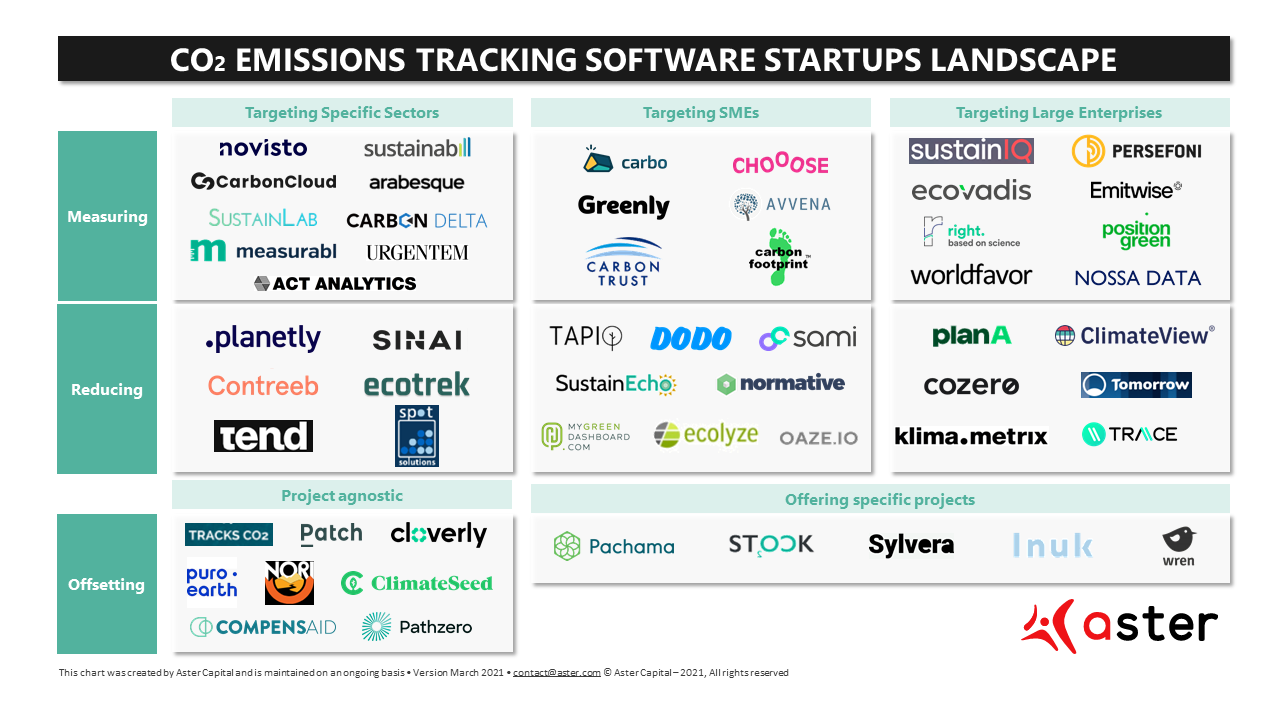In recent months, many carbon footprint management solutions have emerged and/or raised significant funding. This trend caught our attention: we have always been convinced that it is important to reduce your carbon footprint as an individual (starting with switching to 👋 ekWateur for instance), but is this topic about to reach maturity in B2B sectors?
Carbon dioxide (CO2) increasing concentration in the earth’s atmosphere is the first human-caused source of global warming. CO2 emissions tracking consists of all initiatives to report, monitor, measure but also to reduce, offset and remove the CO2 from the air.
In recent years, three sectors have stood out as the fastest-growing sources of CO2 emissions: industrial processes have increased by 174%, transportation by 71% and manufacturing and construction by 55%.
In light of this, and driven by EU regulations (the Emissions Trading Scheme, the European Green Deal, etc.) and consumer awareness, the carbon footprint management market is expected to reach a size of $12.2bn by 2025. Long held back by the high cost of carbon footprint reduction and insufficient public incentives, many solutions are emerging to help industrial players monitor their emissions. The value propositions are primarily focused on improving brand image, engaging employees, complying with regulations and reducing emission-related costs.
The field has been quite active with VC deals all along the emissions tracking value chain.

Source: Aster
Many players are emerging, but differentiation remains fairly low. Therefore, we believe that the startups that will stand out will be those that:
- Fully automate data collection and use AI algorithms to recommend the best emission reduction plans,
- Create strong product stickiness by delivering an above-average UX,
- Focus on a specific, highly regulated industry to ensure broad adoption and strong ROI,
- Develop comprehensive tools with bundled offers from data collection and monitoring to reducing/offsetting options,
- Leverage a strong network of assessment or offsetting partners to increase value and create strong network effects.

Source: Aster
